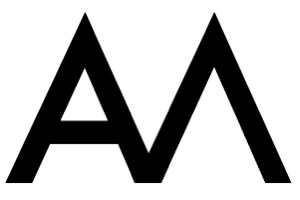The God of the Old Testament is dark and vengeful, isn’t he? The giver of the law, full of judgment and doom, ready to pounce on our every failing?
The irony of God’s critics is they love to judge him—but in this, human beings and their Maker are poles apart.
You see it’s people who love to judge, not God.
Where we live in a state of perpetual outrage, the God who spoke to Moses declared himself to be “the gracious and compassionate God, slow to anger and abounding in love” (Exodus 34:6-7).
Yes, God judges. But he takes no joy in it. He is merciful, which means he is very, very slow to condemn.
My favourite reference to God’s extravagant mercy comes much later, after his people Israel have gone wildly off the rails.
There’s an often-quoted passage in the book of Isaiah that says, “For my thoughts are not your thoughts, neither are your ways my ways,” declares the LORD. “As the heavens are higher than the earth, so are my ways higher than your ways and my thoughts than your thoughts.” (Isaiah 55).
Generally this is taken as a broad reference to God’s transcendence. But the context reveals something more specific and wonderful.
It follows a winsome invitation, “Come, all you who are thirsty, come to the waters; and you who have no money, come, buy and eat! Come, buy wine and milk without money and without cost. Why spend your money on what is not bread, and your labour on what does not satisfy?”
It is first a call to wayward Israel, to turn away from an unfulfilling life. But the invitation is for everyone, for allwho are thirsty, to the morally bankrupt, sick of searching for meaning in the wrong places.
Where should we turn instead?
“Listen, listen to me, and eat what is good, and you will delight in the richest of fare.”
God calls us to feast on his words—and the prophet, Isaiah, is moved by what he hears. He says, “Seek the LORD while he may be found; call on him while he is near. Let the wicked forsake their ways and the unrighteous their thoughts. Let them turn to the LORD, and he will have mercy on them, and to our God, for he will freely pardon.”
And then comes the famous bit.
“For my thoughts are not your thoughts, neither are your ways my ways,” declares the LORD. “As the heavens are higher than the earth, so are my ways higher than your ways and my thoughts than your thoughts.”
Here God anticipates our reservation. He’s telling us not to second-guess his invitation. He has just said, “I will freely pardon anyone who turns to me”. And the natural response of people who have gone their own way is… surely not. Surely I deserve judgment.
Because our natural inclination is to judge others, we expect God to judge us too. But God says, “…let the wicked turn back… for my ways are higher than your ways.” He’s not just saying, adopt a higher way of living that’s in keeping with mine, because my standards are higher, although that’s certainly true. More specifically, he is saying, “You can turn back because I operate differently to you. That’s why you can leave your old way of living, and every attempt to satisfy yourself, and expect to receive a lavish and satisfying welcome—all for free—when you turn back to me.”
God longs to forgive us! We love to judge, but this is the higher way. Why not answer his call today?
